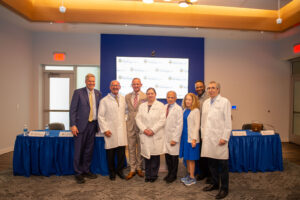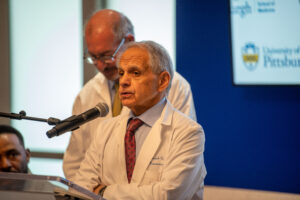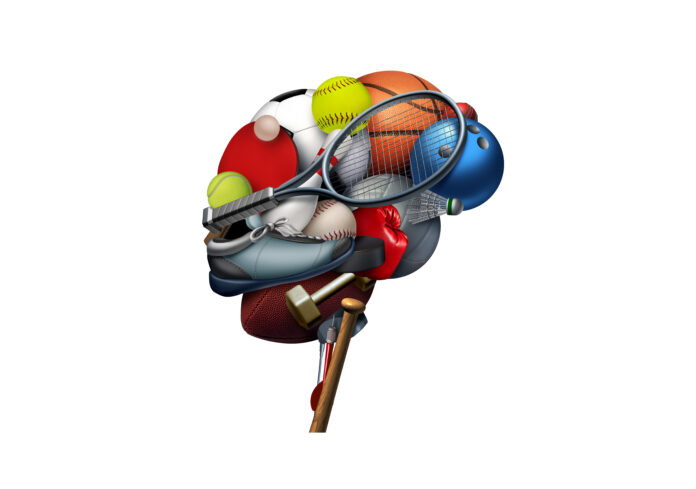Participation in contact sports with exposure to repetitive traumatic brain injury (rTBI) has been linked to the development of the neurodegenerative disease, chronic traumatic encephalopathy (CTE). There remains, however, considerable discussion and disagreement about the incidence of this disease in people at risk, factors of resilience and vulnerability and the underlying pathogenic mechanisms. Currently, post-mortem diagnoses are made. Research into the different aspects of CTE will only increase our knowledge of this condition; the societal value in the United States is immense given the prominence of sports in our communities. More brain banks are needed; data and findings need to be shared.
The University of Pittsburgh is ideally suited to develop a sports concussion research center with already more than 2,000 specimens in the University’s neurodegenerative brain bank. On May 19, 2023, the chancellor, the dean, the head of the Alzheimer’s Disease Research Center and the director of the division of neuropathology announced the formation of the National Sports Brain Bank (NSBB; https://pitt.edu/nsbb) as an integral part of the existing Brain Bank.

Goals of the NSBB include outreach to populations at risk and establishment of a disease focused brain bank. Those eligible for participation include:
- Symptomatic and asymptomatic former contact sports participants at all levels of play including high school, collegiate and professional levels.
- The study is open to all adults ≥18 years, but active outreach activities will focus on former athletes ≥65 years of age.
- Participants will undergo a telephone cognitive screening to confirm capability to provide consent.
- Data, including demographics, medication and family history, cognition and daily functioning, mood, brain injury and sport participation history will be collected, securely. A study partner who knows the individual donor well will complete a separate set of questionnaires that describe their relationship to the individual, and collect information about the participant’s cognition, mood, behavior and daily functioning.
- Participants and their study partner will receive annual follow-up questionnaires to longitudinally track their cognitive, behavioral and overall health.

Autopsies will be performed at the University of Pittsburgh for local participants; autopsies will not incur any cost for the participant’s family. Diagnostic evaluation will be performed by an experienced neuropathologist using state of the art protocols and consensus criteria and will screen for a wide range of neurodegenerative, vascular and other pathologies. A formal diagnostic report will be created and shared with the family.
Deidentified tissue samples and data sets will be freely shared with interested and qualified investigators after approval of feasibility and scientific merit of the proposed study and completion of all necessary ethic approvals and material transfer agreements.
Julia Kofler, principal investigator of the NSBB, is a co-investigator of the “CONNECT-TBI CONSORTIUM” which is funded by the NIH and led by Drs. D. Smith and W. Stewart. This consortium consists of neuropathologists with expertise in neurodegenerative disorders; their mandate is to generate a consensus in the operational criteria for the diagnosis of TBI-related neurodegeneration and to evaluate the extent and distribution of all neuropathologies resulting from TBI exposure. Complete transparency and peer review is thus assured.
Partial funding was provided by the Richard K. Mellon foundation, the Pittsburgh Foundation and the Chuck Noll Foundation for Brain Injury Research. The NSBB, however, functions completely independently with no representation or input from any organization or foundation.
Jerome Bettis, former Pittsburgh Steeler and Hall of Fame fullback, Merril Hoge, former Steeler and ESPN commentator, the authors of this paper and 30 other individuals have pledged their brains to date. The overarching goal is to build a well-annotated registry and brain bank of individuals at risk, including those with and without concussion history, from different ages, different sports and different levels of play to avoid selection bias in sampling. Hopefully, over time, this resource will form the foundation for follow-up studies and collaborations with other brain bank centers, improving our ability to diagnose, treat and prevent the occurrence of this disastrous condition.








